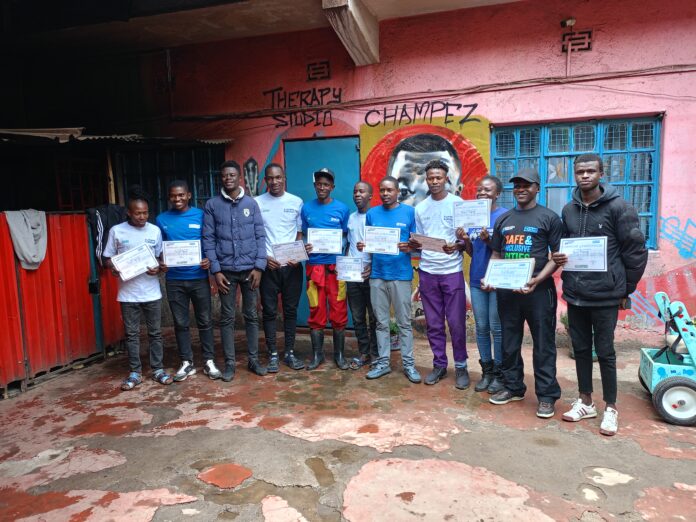By Juliet Akoth
Mathare, Kenya: Within Nairobi County’s vibrant urban landscape, Mathare constituency thrives . Mathare is home to diverse low-income families diligently facing the challenges that come with the area’s slum status in their pursuit of making ends meet. Despite prevailing negative narratives of crime, early pregnancies, and drug abuse, a dedicated group of youths in Mathare is determined to reshape their community’s destiny.
On a brisk morning, I ventured to Mathare’s Mlango Kubwa ward, eager to explore the positive change initiated by this group of youths. Braving inclement weather, I reached Generation Shapers’ premises, a beacon of hope in this vibrant but underserved community.
Upon entering the office, I noticed a captivating scene. Young individuals, predominantly males, gathered around tables, tuned in to a football match on a small radio. The room proudly displayed the organization’s name, along with placards showcasing the 17 Sustainable Development Goals (SDGs). The occasion marked the graduation ceremony for male champions who underwent intensive training on various critical topics.
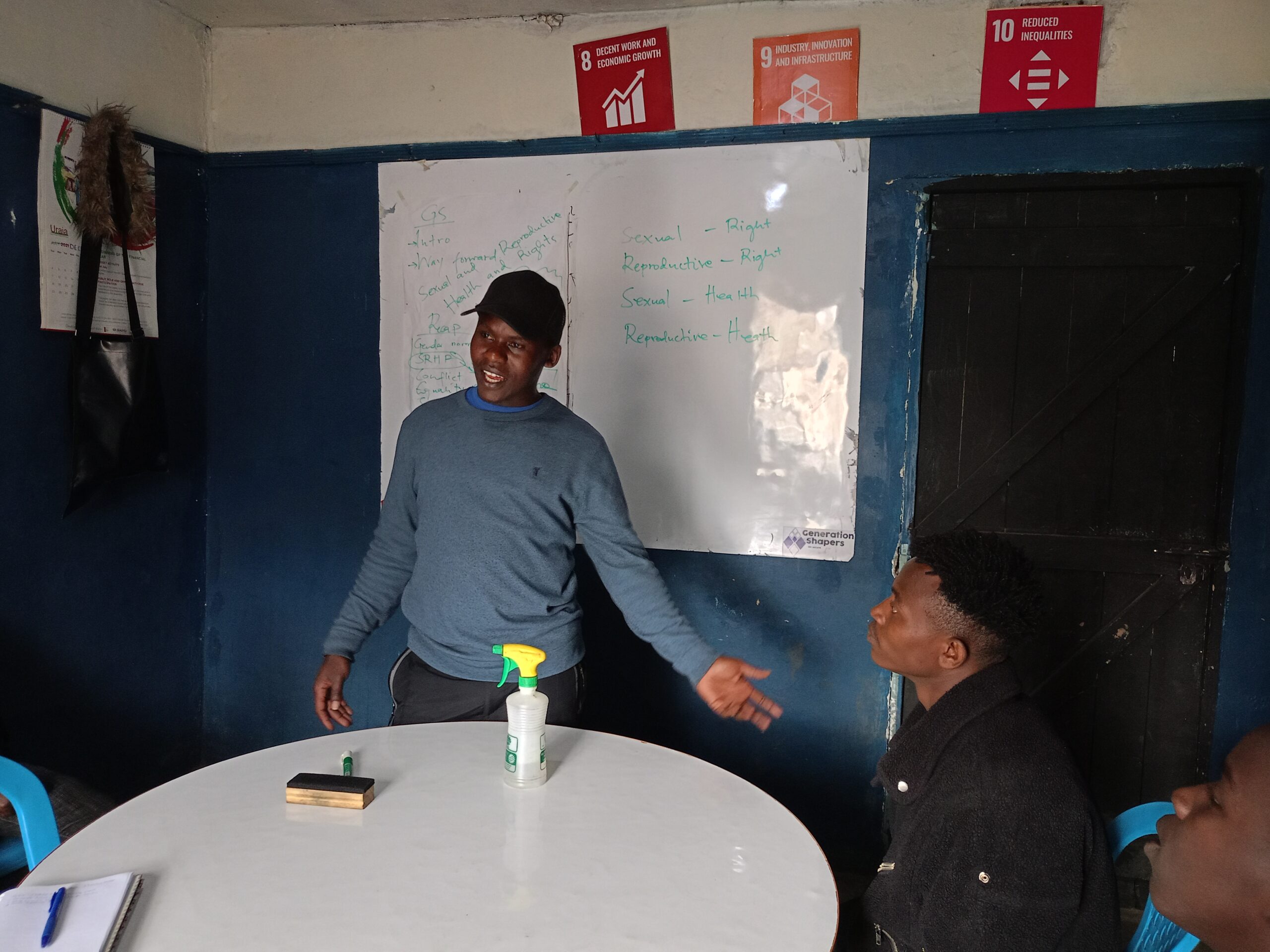
CEO Calvin Shikuku set the tone, emphasizing the responsibility each individual, young or old, holds in bettering their community. “Today marks the graduation of 10 male champions joining a pool of about 40 safety ambassadors that we have trained so far. These ambassadors are a diverse group based in different parts of Mathare, and their work is to document harassment cases, combat them by raising awareness, and just be role models on matters to do with gender and safety,” said Shikuku. The meeting unfolded smoothly, with members present providing inputs in response to the CEO’s questions on what they had been learning. The graduating class outlined plans, including organizing a pad drive, engaging with stakeholders, and disaster management initiatives. Armed with copies of the Sexual Offenses Act, these champions are prepared to advocate for the rights of their community.
Vincent Nzomo, a Generation Shapers’ male champion from Mashimoni area, lauds the organization for its role in his life. “The activities of Generation Shapers have helped keep me occupied while at the same time given me a platform to advocate for the rights of the voiceless,” noted Nzomo. He shared insights into the organization’s impactful activities, addressing challenges faced by the youth in Mathare, such as unemployment and drug abuse.
Drug abuse, fueled by affordability and ease of access, remains a major problem among the youth in this informal settlement. Illicit brews like “Chang’aa” and cannabis use have surged, impacting many young people.These Illicit brews often branded in small plastic sachets go for as low as Ksh.10 while a roll of bhang goes for Ksh. 20. Nzomo explained that unemployment has pushed many young people on the brink of depression, leading them to abuse drugs as a coping mechanism.
“Many young people here are neither in school nor employed, and so they waste away their days idling in area groups where they expose themselves to these substances,” revealed Nzomo. He appeals to the police to be more intentional in how they deal with drug peddlers, emphasizing the need to weed out rogue police officers encouraging the drug-selling syndicate.
With a diverse membership of 44, Generation Shapers, officially registered in 2019, has been actively addressing challenges within Mathare.
The group operates with a holistic approach, focusing on four pillars: environment, economic empowerment, humanitarian response and disaster management, and education with advocacy, gender transformation, and social justice being their main approaches.
“To ensure a low percentage of failure, we often conduct forums, outreaches, and walks to agree with the community on the activities that they want to implement,” noted CEO Shikuku. When it comes to humanitarian response, the organization initiates first aid initiatives, sensitization on dealing with fire outbreaks, and mobilizes resources to help those affected.
Moreover, Generation Shapers runs a business sustaining them and providing employment to young people in their focus areas. “Currently, we have a branding business where we brand t-shirts, mugs, among others, which started as a recycling initiative where we would take old wine bottles, wash, paint, and sell them,” highlighted Shikuku.
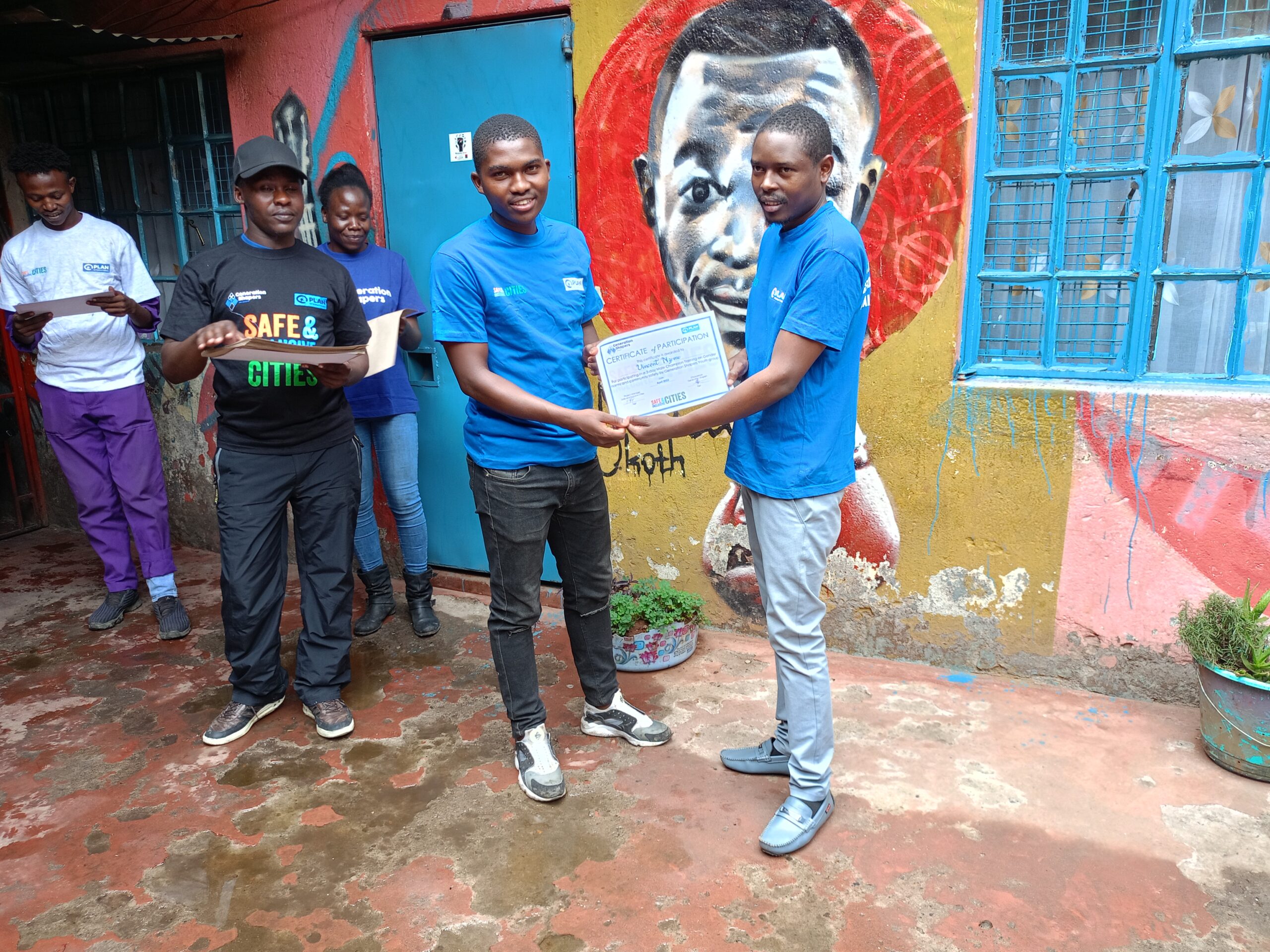
CEO Shikuku emphasized Generation Shapers’ critical role in addressing sexual and reproductive health challenges. Through collaboration with their main partner Plan International, they execute the Safe & Inclusive Cities (SAIC) project, focusing on sexual and reproductive health rights and urban safety in the community.
According to the monitoring and evaluation officer of the SAIC project, Eric Koome, SAIC is a 4 year project funded targeting young people aged between 15-24 living in informal settlements with the goal of ensuring they empower them to thrive in various areas of their lives and become resilient. This influenced their decision of working with various youth groups mainly based in informal settlements as they can easily and directly reach young people in the communities.
“Under SAIC project, we are working with 11 Community-Based Organizations (CBOs) and out of the 11, seven are youth led and four whose work cuts across Nairobi and Kisumu counties are technical led,” said Koome. Some of the other organizations under the project include Maria Rossana implementing in Huruma, Kibera Joy Initiative (KJI) implementing in Kibera and Network for Adolescents and Youth of Africa (NAYA) implementing in both Nairobi and Kisumu.
With support from Plan International, this group has sensitized community members on sexual gender-based violence and conducted safety awareness campaigns. Within Mathare, youth-friendly sexual and reproductive health services are lacking, contributing to stereotypes and misconceptions.
“Many youths are afraid to seek them specifically because there are a lot of stereotypes on issues to do with family planning and a lot of judgment when young people go and visit these hospitals,” revealed CEO Shikuku.
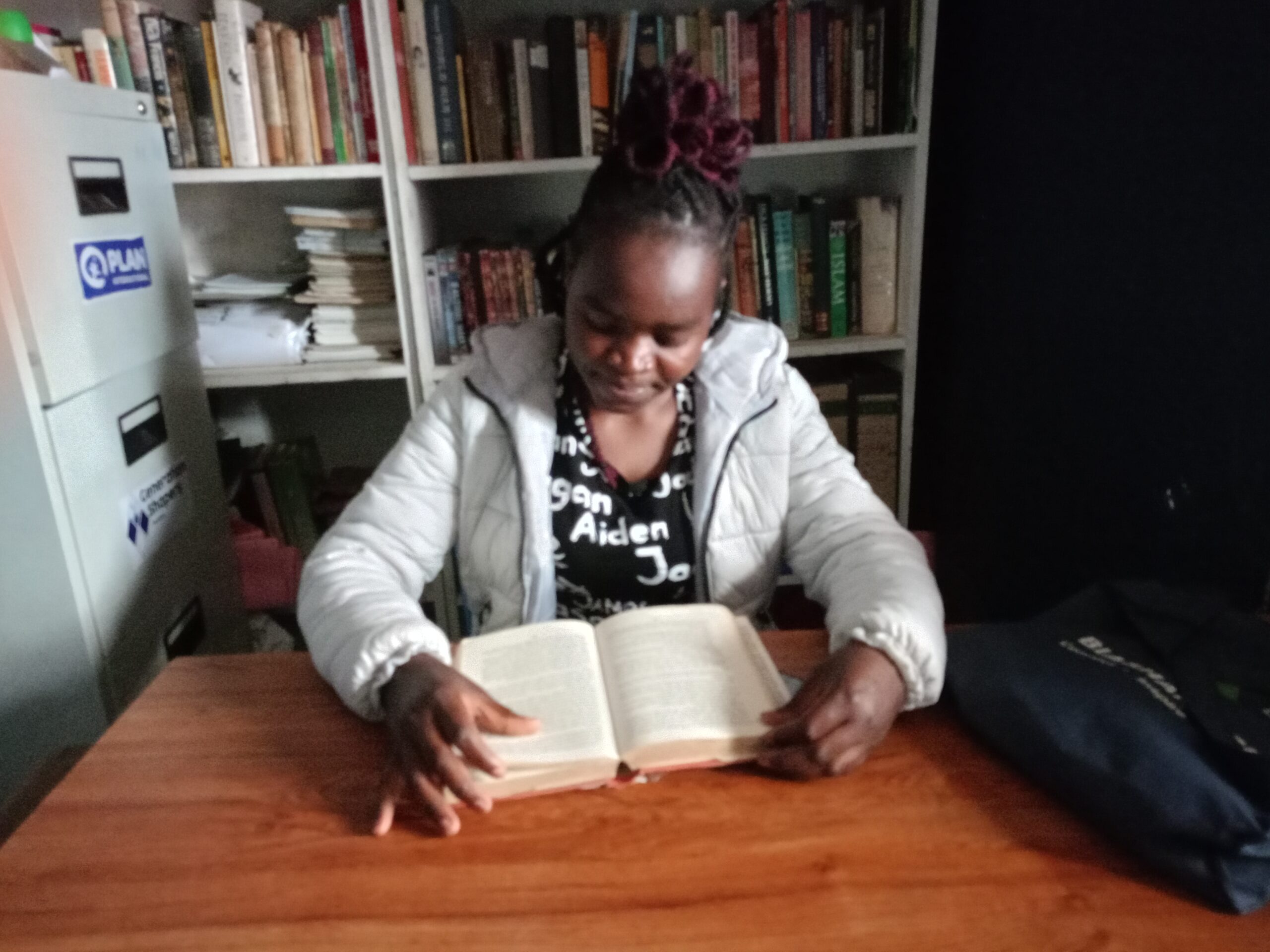
Early childhood pregnancies remain a significant stumbling block for girls in Mathare. Forced to drop out of school, young mothers face financial strains and their children lack father figures . In response, Generation Shapers initiated Girls’ Corner, providing a safe space for girls to discuss challenges they face.
Through girls’ corner outreaches, young women receive mentorship and economic empowerment. Cynthia Awuor, a member from Utalii ward in Ruaraka Constituency, emphasized that the skills and mentoring are instrumental, especially for young mothers. Girls are trained by their peers, leading to successful ventures like soap-making businesses.
The Girls’ Corner participants are mentored on topics like the importance of abstinence for young adolescents and safe abortion and contraceptive practices is recommended for those of legal age. Toll numbers for organizations like Marie Stopes are provided. Awuor adds, “It is not easy to follow up on all the girls that we train and mentor. That’s why there are nine other grassroots groups where the mentees check up on each other and reveal the progress they are making.”
When it comes to addressing sexual gender-based violence, Generation Shapers leverages its networks with the Mathare community to identify and advocate for survivors. Joint collaboration with health promoters enables the group to respond to challenges and document GBV cases referred to the right duty bearers.
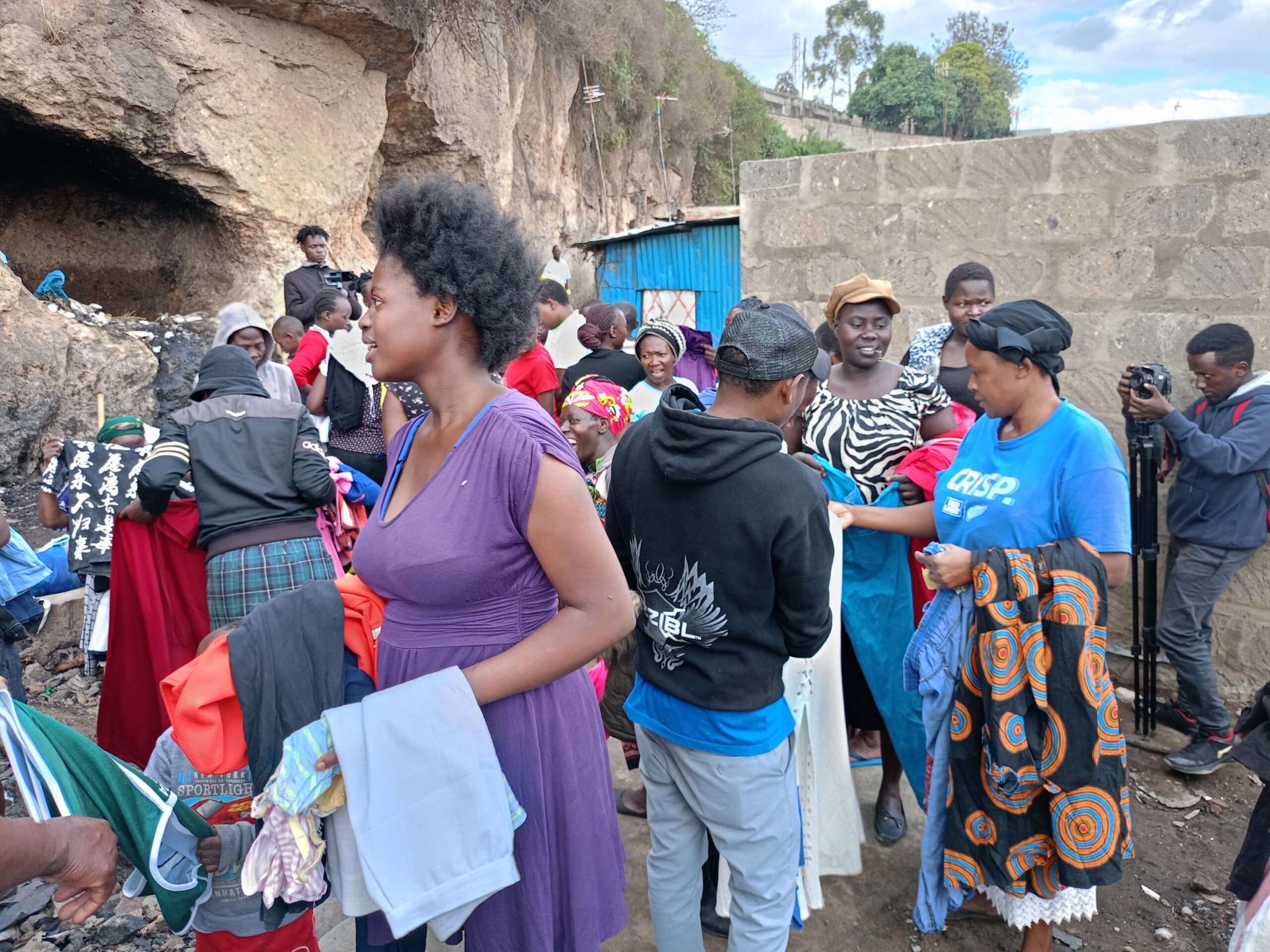
While facing challenges, including mobile youths and insufficient resources, Generation Shapers and partners persevere. Koome discloses challenges of mobile youths seeking employment, affecting project sustainability. “Most of the youths in the community are very mobile due to factors like seeking employment and change of marriage status. This has in turn affected the sustainability of the project as most of the youths trained cannot be hindered from venturing into other careers in the community. This requires training more and more groups,” he noted.
Generation Shapers on their end cited insufficient resources as the main hindrance to executing their duties, especially during disasters like fire outbreaks. “In our community, frequent occurrences of disasters, such as fire outbreaks, prompt us to extend a helping hand to victims whose homes have been ravaged. We collect unused clothing from unaffected individuals and contribute them to those affected. However, the challenge arises when determining the most deserving recipients among the numerous victims,” Cynthia disclosed.
When asked about the government’s role in helping those in informal settlements, Shikuku expressed frustration at neglect. “We have been neglected by the government. I think we need affirmative action because when you look at the chances of somebody surviving a slum and becoming someone compared to somewhere else like Karen, it’s a rigged kind of set-up.”
He stressed the need for a holistic government program providing awareness, education facilities, and employment. Shikuku emphasized that getting rid of slums is not a solution, as slums include not only structures but also the people who live in them.
He also urged the community to deal with its own challenges. “I think it is quite irresponsible for a community to assume that somebody else can clear its own mess. A community needs to be receptive, accept the challenges it’s facing, and be ready to do something about it.”
Looking forward, Generation Shapers plans to expand its disaster framework and focus on skilling more young people.

